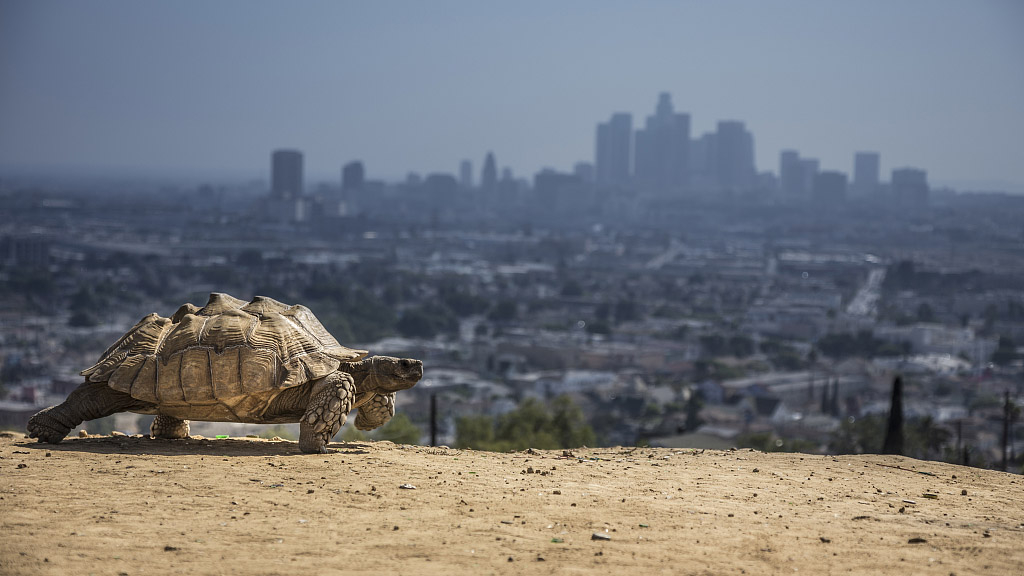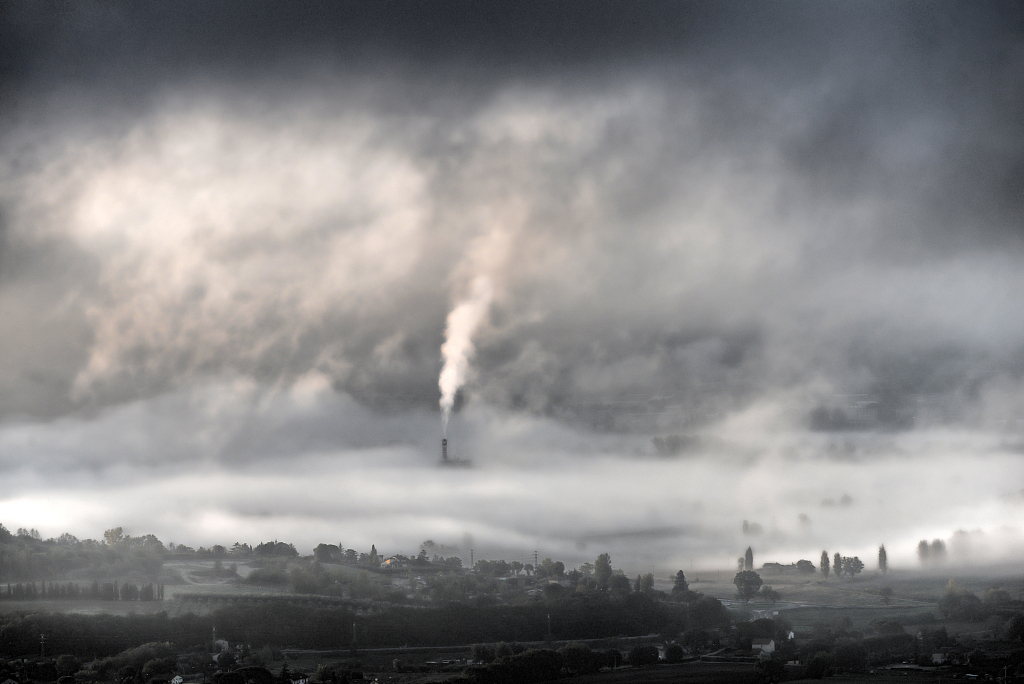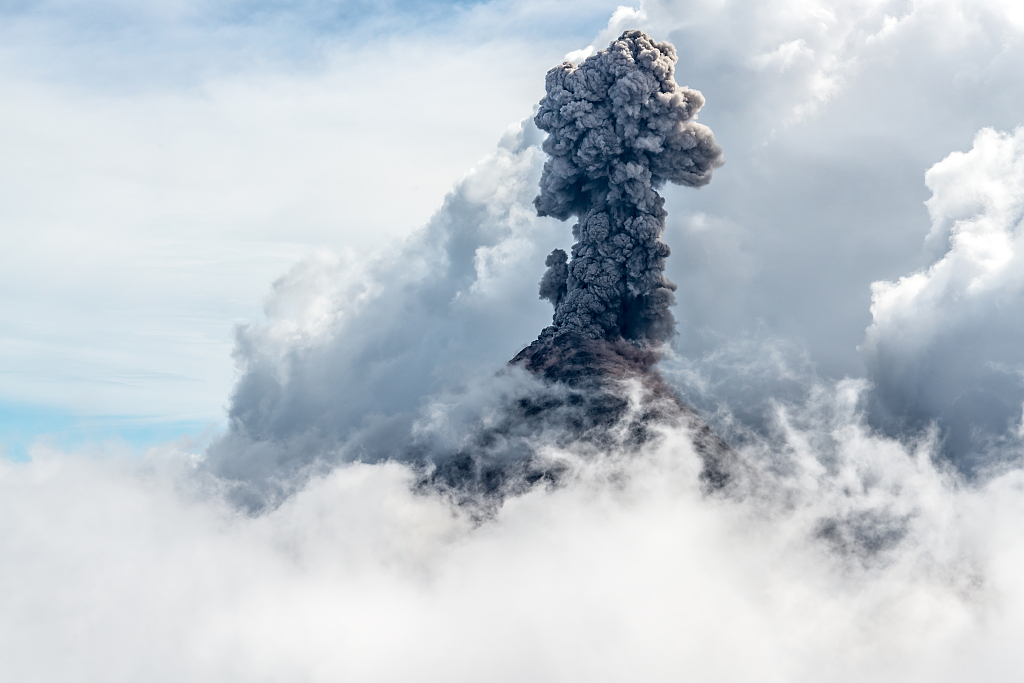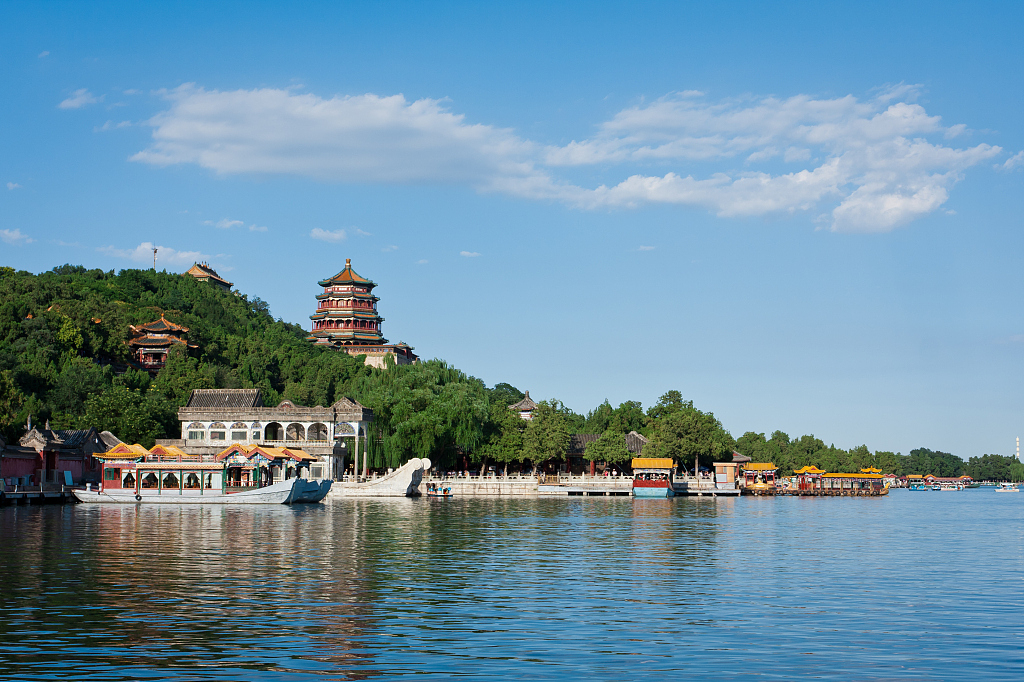
Environment
09:40, 05-Jun-2019
World Environment Day: Beat the biggest environmental health risk of our time
By Xing Fangyu
01:31

China is celebrating UN Environment Day today with the theme of "Beat Air Pollution."
None of us can remember the first breath we took when we came to this planet. But the scents of peach flowers in spring, the damp moss in summer, rotten leaves in autumn, and the snow forest in winter have become part of our souls.
Until air, the source of life, has become linked with death.
A global issue
Global deaths from exposure to outdoor air pollution is around 4.2 million every year, more than the entire population of Los Angeles.
From animals to plants, men to women, we take breaths every day. Air should be the foundation of life, but now it is destroying our health.

Air pollution is a mix of particles and gases that threaten human life. /VCG Photo
Air pollution is a mix of particles and gases that threaten human life. /VCG Photo
Statistics from the World Health Organization shows that global urban air population levels increased by 8 percent between 2008 and 2013. It has contributed to diseases such as stroke, lung cancer, chronic respiratory disease and heart disease.
Nature itself can also create air pollution. Volcano eruptions, earthquakes and sandstorms generate natural air pollutants including volcanic and combustion gases, ash and soot. But compared with man-made air pollution, natural sources of air pollution are temporary natural events that cannot be prevented.

Natural events like volcano eruption can cause air pollution as well. /VCG Photo
Natural events like volcano eruption can cause air pollution as well. /VCG Photo
The components of man-made air pollution are much more complex than natural air pollutants.
Man-made air pollution is caused by burning oil, coal, gasoline and other fossil fuels. Human activity contributes to emissions like carbon dioxide, hydrocarbons, sulfur dioxide, nitrogen dioxides and particulate matter.
Human health and Earth's climate change are closely linked with air pollution. Moreover, the issue has become an emergency.

Air pollutants like greenhouse gases and methane, nitrous oxide and others are linked to climate change. /VCG
Air pollutants like greenhouse gases and methane, nitrous oxide and others are linked to climate change. /VCG
Solving pollution at national and city levels
"Air pollution is the biggest environmental health risk of our time," warned the UN. But we still have hope. Beijing's story of 20 years of air pollution control has shown the possibilities of bringing back the blue sky.
Capital cities of developing countries are most affected by air pollution, Beijing included. Since 1998, comprehensive programs have been implemented to tackle such pollution.
By creating a sophisticated air quality monitoring system and reducing coal combustion sources and vehicle emissions, primary air pollutants such as SO2, NO2 and PM10 have decreased by 93.3 percent, 37.8 percent and 55.3 percent respectively by 2017, according to a UN report.

The blue sky in Beijing. /VCG Photo
The blue sky in Beijing. /VCG Photo
The progress is closely related to the government's economic incentives and financial support, as well as the coordination between Beijing and surrounding areas.
In 2013, a new intensive pollution control plan, "Beijing 2013-2017 Clean Air Action Plan," was introduced. The five-year plan has helped lower the capital's annual average PM2.5 concentration to 58 µg/m3 and decreased by 35.6 percent.
"No other city or region on the planet has achieved such a feat," wrote Joyce Msuya, Acting Executive Director of the UN Environment Programme. China's efforts in addressing air pollution is described as "a success story."
A helping hand
Despite the tremendous progress China has made, air quality in Beijing and its surrounding areas has not completely reached national standards, and pollution occurs frequently during particular seasons such as autumn and winter.
Whether you are in Beijing or New York, Delhi or London, beating air pollution is a long-term project that requires everyone's participation.

Without everybody's participation, the blue sky won't come back. /VCG Photo
Without everybody's participation, the blue sky won't come back. /VCG Photo
There are multiple ways to tackle air pollution, such as planting trees, cleaning up trash and reducing our carbon footprint, but it's easier to say than do.
Humanity's impact on our planet is inevitable, so what we need to do is to find ways to minimize the negative influences in our journey toward Ecological Civilization.
(Cover image via VCG)
(If you want to contribute and have specific expertise, please contact us at nature@cgtn.com.)

SITEMAP
Copyright © 2018 CGTN. Beijing ICP prepared NO.16065310-3
Copyright © 2018 CGTN. Beijing ICP prepared NO.16065310-3